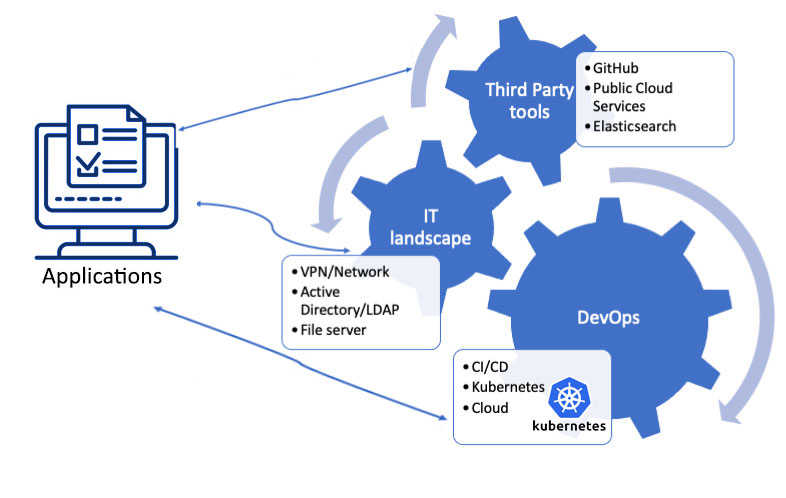Why is Integration part of DevOps at Gavika? That is because we think Integration is key to the overall success of DevOps and when we get all the relevant experts ( Integration, Testing, CI/CD, SRE, IT Ops, and development) together, it's transformative. We can expect quicker turn-arounds and improved decision-making.
With Gavika's proven Integration methodologies, improve ease of operations by unifying your applications, services, people, and processes. Integrate third-party services and internal IT infrastructure in multi-cloud environments. Get more value out of your investments in technologies and services such as Github, NewRelic, Datadog, Active Directory, LDAP, VPN, etc. Deliver more and faster by bringing in agility in systems and processes.

Modern software development with DevOps has a lot of moving parts. It empowers single and multiple teams to operate in tandem like never before. Inevitably, it creates a need to integrate various third-party and in-house tools and services.
Many subsystems are capable of working with or without integrating with the main system. Connecting tools and services provides better cohesion which in turn yields better visibility and productivity.
Typically, software development teams use various services for source control, CI, deployment management, error aggregation, log aggregation, monitoring, alerting, dashboarding, etc. Sometimes these services are external SaaS components. Sometimes they are in-house services. Often they are a combination of external SaaS components and internal services.
A typical day in a team might look like this. Developer commits a change to a Git repository. The CI system listening to the Git repository notices the change and triggers the build and test processes. The test result notifications are sent to a Slack channel. The developer makes a deployment. The operations and development teams monitor the critical metrics after the deployment. The cycle keeps repeating. In this scenario, integration with Github, Slack, DataDog, ElasticSearch, Logstash, Kibana, Jenkins, Prometheus, Grafana, Alert Manager are required. The choice of internal tools and external SaaS services vary across organizations and teams.